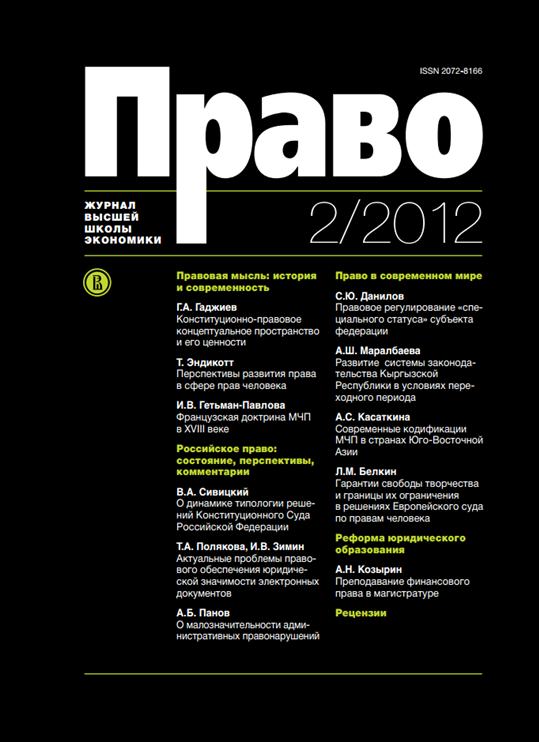Conceptual Space of Constitutional Law and Its Values
Abstract
Constitutional law space is part of conceptual space. Ontologically, the structure of constitutional law has three layers: legal principles, positive constitutional law, traditions and practice. The third layer may be noted as the one containing constitutional law ethics. Discussing the relations between these levels of law, it should be noted that they are not isolated either from each other or the reality beyond law. In particular, constitutional values codified in the constitution are not self-sufficient and hence, require evaluation in terms of ethics. The economic analysis of law supposes the interaction between the reality of law and the reality of social and economic relations. This approach is in line with the externalist type of legal argumentation and contradicts the internalist one. The constitutional law conceptualism is a type of legal positivism. One should consider the limits of conceptualism in law, not to exaggerate the significance of symbolic conceptual reality in the form of the text of the RF Constitution. The legal conceptual space is a place for real things and subjects on the one hand being their reflections and on the other hand attributing them with qualities and characteristics which they lack in reality. However, constitutional law should not exist separate from reality and it starts operating with symbolic patterns substituting the reality with fictions and an individual –whose supreme value is codified in the constitution - with a subject of law. Applying constitutional law axiology, the category of proportion (balance of values) is no less relevant. The principle of proportion being a constitutional value has become a universal method of solving legal problems in constitutional law. One of such problems is weighing conflicting binary legal values (freedom of expressing opinion and press and freedom of elections; interests of a parent and a child etc.). These paired constitutional principles may contradict and this dialectics makes up a dynamics of the entire space of the constitutional law reality.
Link: https://law-journal.hse.ru/article/view/21388
Copyright (c) 2012 Law Journal of the Higher School of Economics

This work is licensed under a Creative Commons Attribution-ShareAlike 4.0 International License.














